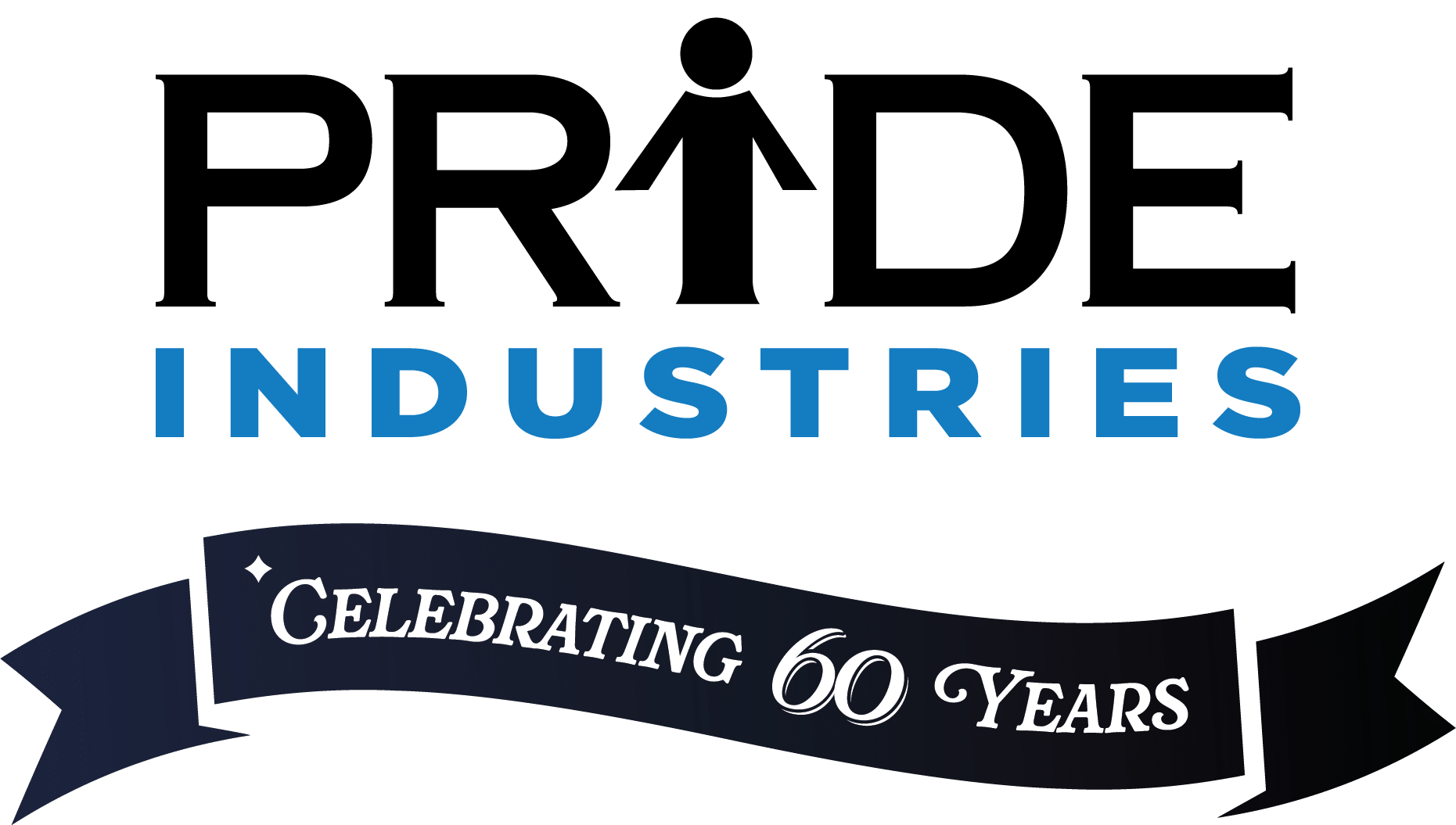Jobs for Blind People
Creating Employment for People with Blindness and Low Vision
Jobs for Blind People
Blind and low vision people face several barriers when looking for jobs, including a lack of accessibility in the job market. Many employers do not provide accommodations for blind and visually diverse people, such as screen readers or Braille displays, which can make it difficult for them to perform their job duties. Additionally, many job postings are not accessible to blind people, as they may be posted in a format that is not compatible with screen readers.
PRIDE Industries has a long history of helping blind and low vision individuals find jobs, and it offers support services that make the job search process easier including job training programs that teach blind people the skills they need to succeed in the workforce, job placement assistance, and supports employers’ efforts to create inclusive workplaces. PRIDE Industries also offers a variety of other services, such as assistive technology training and support to help people overcome the barriers to finding employment, and they can help visually diverse people find jobs that are a good fit for their skills and interests.
Employment Services for Blind People
Job Preparation
There are a number of ways we help blind and low-vision people prepare for the job market, including:
- Skills assessment: We help blind people identify which of their skills best align with job opportunities.
- Skills development: We provide instruction and training in skill development to fill any gaps in employment readiness.
- Resume and interview preparation: We help visually diverse people learn how to create resumes and prepare for in-person and online interviews.
- Accommodation analysis: We identify any workplace accommodations people may need, such as braille keyboards, screen reading technology, dictation and magnification software.
Job Placement
With proper support, visually diverse people can have opportunities in areas in many fields, including:
- Computer programming
- Web development
- Data entry
- Customer service
- Teaching
- Writing
- Braille transcription
When helping people with low vision find jobs, we consider their individual interests and their abilities as revealed by a skills assessment. We also take their needs into account. Some people are sensitive to light, for example. We help candidates identify their needs and advocate for reasonable accommodations.
On-the-Job Support
Job coaches support blind and low vision employees on the job by ensuring that they have:
- Reasonable accommodations: This includes a supportive environment, flexible work hours, and assistive technology.
- A welcoming and inclusive work environment: To achieve this, we can educate staff about visual diversity, show them how to promote understanding and acceptance, and how to celebrate inclusion.
- Training and development opportunities: This helps visually diverse employees develop their skills and confidence, and progress in their careers.
- Recognition and rewards for achievement: This helps blind employees feel valued and appreciated, and contributes to their overall well-being by providing advancement opportunities.

Our Commitment to Service Excellence
PRIDE Industries holds the prestigious 3-year accreditation from the Commission on Accreditation of Rehabilitation Facilities (CARF), an international, nonprofit health and human services accreditor. This recognizes that we have made a specific commitment to put the needs of our participants at the center of the services we design and deliver, and that we strive to continuously improve efficiency, fiscal health, and service quality and delivery.
In part, this accreditation recognizes PRIDE Industries for:
- Providing excellent employment services, employee development services, and employment planning services.
- Being highly regarded in the community and building positive relationships with partners and employees.
- Holding safety as a high priority.
- High satisfaction from persons served, families, and other stakeholders.
- Longevity of leadership, which provides continuity to the organization’s mission.
CARF accreditation means that the CARF-accredited provider is committed to reducing risk, addressing health and safety concerns, respecting preferences of individuals (cultural or otherwise), and providing the best quality of care possible. It also shows that the accredited organization values the feedback and input of their customers with disabilities and is accountable to the community. And, finally, accreditation demonstrates that an organization has opened its service delivery and business processes to outside scrutiny to improve the quality of its programs.
FAQs: Jobs for Blind People
-
There are many other jobs that blind people can do, depending on their skills and interests. The most important thing is to find a job that is a good fit for the individual and that they are passionate about.
- Computer programming: Blind people can be successful programmers, as they can use screen-reading software to read code and navigate the computer.
- Data entry: Blind people can be accurate and efficient data entry clerks, as they can use assistive technology to type and enter data.
- Call center representative: Blind people can be effective call center representatives, as they can use assistive technology to communicate with customers.
- Teacher: Blind people can be inspiring and effective teachers, as they can use assistive technology to deliver lessons and interact with students.
-
Resources are available to help blind people get jobs through normal hiring channels or through organizations dedicated to helping people with blindness or low vision and other disabilities find jobs. Help is often available from vocational rehabilitation counselors who facilitate job searches and employment and provide assistive technology and other resources. Research companies that are known for being disability-friendly. Many companies are committed to hiring people with disabilities and may be more likely to accommodate your needs. It is important for blind people to be confident in their abilities. Vision should not hold people back from meaningful employment. Focus on skills and showcase past job success.
-
The unemployment rate of blind people of working age in the United States is estimated to be around 70 percent, which is significantly higher than the general population unemployment rate of 3.6 percent. This is due to a number of factors, including the lack of accessible employment opportunities, the stigma associated with visual diversity, the availability of convenient transportation to and from the workplace, and the challenges of finding and keeping a job.


